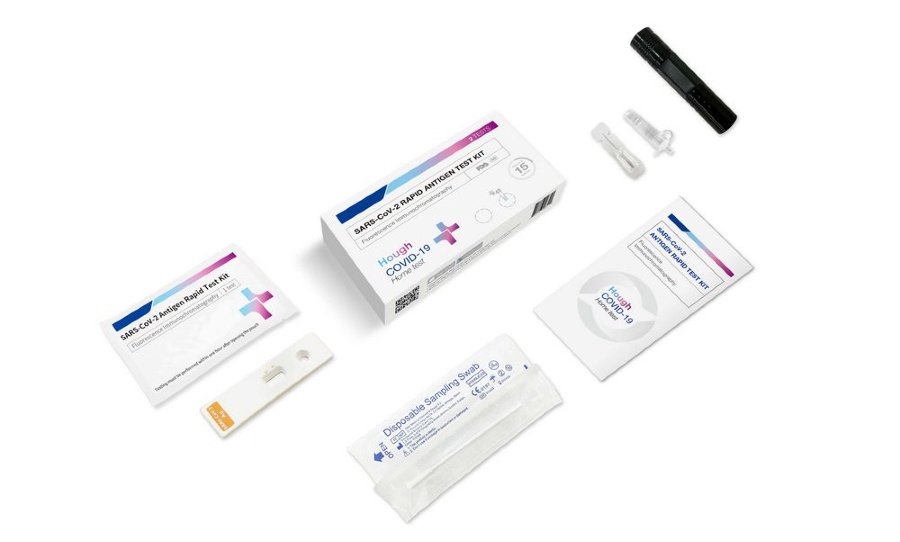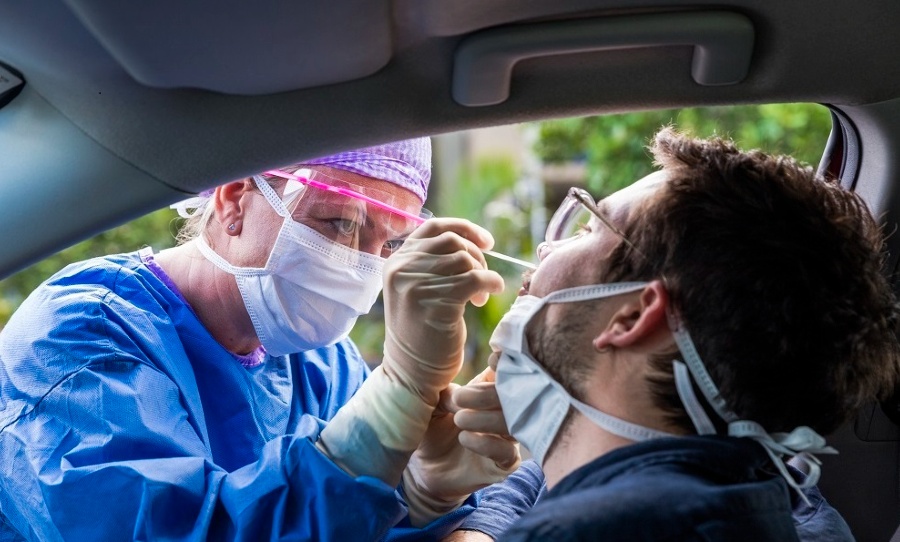With cases on the rise leading up to Christmas, testing lines are out of control: so should rapid antigen tests be free?
Unlike PCR testing (polymerase chain reaction), which has been free throughout the course of the pandemic, rapid antigen tests cost upwards of $10.
Furthermore, with case numbers on the rise and the general sense of pre-Christmas hysteria, rapid antigen tests have become quite the commodity, selling out like toilet paper rolls.

Business and union groups say that the Australian government should implement free or subsidised rapid antigen testing. It is believed that this will not only appease immense PCR lines and improve accessibility, but send a “market signal” to suppliers that Australians are willing consumers. This, in turn, would stop the type of product shortages we’re currently experiencing.
Rapid antigen testing is not as accurate as PCR testing, however, it is much quicker and can be done at home. What’s frustrating, however, is the inability of many to access them due to costs and shortages.
The Council of Small Business Organisations Australia chief executive, Alexi Boyd, said that “We just need as many options as possible […] Nothing is the golden ticket out of this but we need as many pieces of weaponry against it as possible.”
Boyd further stated that “Some people may say $15 a pop is not expensive, but if you’re running a hairdressing salon with 20 people on different shifts throughout the day [it can add up].”
He’s not wrong and if it’s not expensive, then surely the government can foot the pill, come on ScoMo.
Rapid antigen tests detect COVID-19 by reacting to proteins on the surface of the virus called antigens. As the name implies, they produce much faster results than PCR testing.
Got your Christmas essentials? If you don't have COVID-19 symptoms, we encourage you to take a rapid antigen test before heading out to Christmas parties or big events – just in case. pic.twitter.com/hoTb27RIdY
— Victorian Department of Health (@VicGovDH) December 20, 2021
So, rapid antigen tests are quicker, easier, can be done at home, will curb lines for PCR tests and have been promoted by governments as a viable means for controlling case numbers. Why then, are they not free and more readily accessible in Australia?
Professor Jaya Dantas, Curtin University public health expert, has said that as Australia’s case numbers soar higher, we need to learn from overseas examples. Rapid antigen tests are free and used readily throughout many European countries including the Netherlands.
As we move into this phase of living with the virus, many Australia’s undoubtedly have mixed feelings, fearing contracting and spreading the virus to loved ones, but also confused and concerned about self-isolation rules moving into the festive season.



